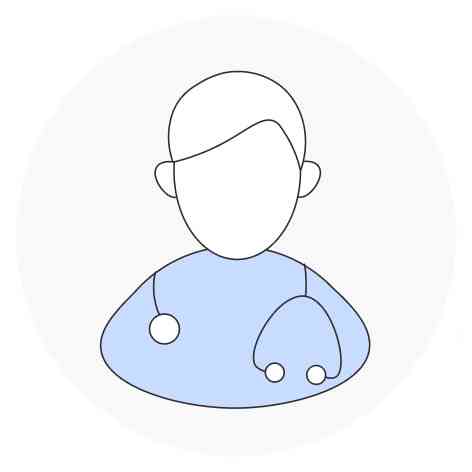Dialysis is a life-saving procedure used to perform the essential functions of the kidneys when they are no longer able to work effectively. The kidneys filter waste, remove excess fluids and maintain proper electrolyte balance in the body. When kidney function declines due to chronic kidney disease (CKD) or kidney failure, dialysis can help manage these vital functions.
Book Your Free Second Opinion
30k+
Surgeries Done
50k+
Departments Treated
150k+
Conditions Treated
3k+
Specialist Doctors
200+
Cities
There are two main types of dialysis:
Hemodialysis – A machine filters your blood, removing waste, excess fluids, and balancing electrolytes. Peritoneal Dialysis – The lining of your abdomen (the peritoneum) is used to filter the blood inside your body. Home dialysis: It has become a popular and convenient option, allowing patients to carry out their dialysis at home under their own supervision.
What You Get From MediBuddy
Get an Expert Second Opinion
Find Top Cashless Hospitals
Find Surgery Cost Estimate
Verify Insurance Coverage
Why MediBuddy For Health Care

Enhanced Quality of Care
Constant support, a network of premium hospitals and top-tier surgeons.

End-to-End Management
Your only focus should be to go and get your procedure done. Leave the rest to us.

Continuous Guidance
Any problem you may face will be resolved with one phone call.

Easy financing support
We bring you the best deals, EMI options without compromising on quality
Who needs Dialysis?
Dialysis is typically required for individuals whose kidneys are functioning at less than 10-15% capacity due to chronic kidney disease or kidney failure. It may also be used temporarily if your kidneys are recovering from an illness, surgery, or injury. Those with: Chronic Kidney Disease (CKD) stage 4 or 5 Acute Kidney Failure End-Stage Renal Disease (ESRD) ...are commonly in need of dialysis. How long does Dialysis need to continue? The length of time you need to undergo dialysis depends on the condition of your kidneys. For some, it may be a temporary measure until the kidneys recover, while for others, dialysis is a long-term solution. Dialysis is usually performed regularly—either three times a week for hemodialysis or daily for peritoneal dialysis.
Dialysis procedure: How it works
Hemodialysis: During the procedure, blood is removed from your body and sent to a machine called a dialyzer. The dialyzer filters waste, excess fluids and chemicals before returning clean blood to your body. The process usually takes about 3-5 hours and is done 3 times a week in a hospital or dialysis center. Peritoneal Dialysis: A dialysis solution is introduced into your abdominal cavity through a catheter. The peritoneum (the membrane that lines your abdomen) acts as the filter. This process is done daily and can be done at home, making it more flexible for the patient. Home Dialysis: the flexible option Home dialysis allows patients to receive their dialysis treatment in the comfort of their own home. With proper training and support, patients can perform hemodialysis or peritoneal dialysis independently.
Advantages of home dialysis include:
Increased flexibility and convenience Fewer visits to the hospital The ability to customize the schedule to suit your lifestyle Alternatives to Dialysis In some cases, dialysis can be avoided or delayed through: Kidney Transplantation – If eligible, a kidney transplant can replace the kidney's function entirely. Conservative Kidney Management – This approach focuses on managing symptoms and quality of life without dialysis. How to prepare for Dialysis Before starting dialysis, you’ll need to: Have regular check-ups to monitor your kidney function Make dietary changes as recommended by your doctor Decide on the type of dialysis (hemodialysis or peritoneal dialysis) Be trained on how to perform home dialysis, if applicable Living with Dialysis Living with dialysis may require lifestyle changes, but many people continue to live a fulfilling life. Here are some things you may experience: Regular treatment sessions (typically 3 times a week) Changes in diet, fluid intake, and medication Possible fatigue, especially after treatment Adjustment to the daily routine of dialysis Uses/benefits of Dialysis Maintaining fluid balance Removing waste and excess electrolytes Prevents life-threatening complications such as fluid overload and severe electrolyte imbalances Improves quality of life for patients with kidney failure
Risks/complications/side effects of Dialysis
While dialysis is generally safe, there are some risks and side effects, including: Infections: Particularly with peritoneal dialysis, where infection can occur at the catheter insertion site. Blood Pressure Fluctuations: Blood pressure can drop during hemodialysis. Fatigue: Some people feel tired or weak after treatments. Blood Clots: Can occur in the dialysis access site. Electrolyte Imbalance: Although dialysis removes waste, it can cause imbalances in electrolytes.
Additional considerations
Dietary Changes: Dialysis patients may need to limit their intake of certain foods and fluids. Medication Adjustments: Some medications, including blood thinners, may need to be adjusted. Mental Health Support: Adjusting to dialysis can be challenging emotionally, and support groups or counseling may help. The cost of Dialysis The cost varies depending on the type of treatment, location, and duration. On average: Hemodialysis in a hospital can cost between ₹2,000 to ₹5,000 per session. Home Dialysis may have a one-time setup cost for equipment and ongoing costs for consumables. Check with your healthcare provider or insurance company to get more clarity. Recovery and aftercare After starting dialysis, you may experience some side effects such as fatigue or soreness, but most patients adjust after a few weeks. Regular check-ups and support from healthcare professionals are essential to ensure the treatment is working effectively. When to see a Doctor You should contact your doctor if you experience any of the following: Shortness of breath or difficulty breathing Sudden weight gain or swelling Fever, chills, or pain around the dialysis site Unusual fatigue or dizziness during or after treatment
Meet Our Doctors

Dr A K Kundlia
general Surgery
20 Years
Book Free Consultation

Dr A V Mohan Reddy
general Surgery
30 Years
Book Free Consultation

Dr Akshay Kumar Solanki
general Surgery
30 Years
Book Free Consultation
Frequently asked questions


